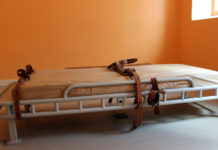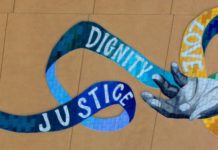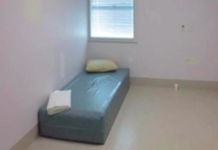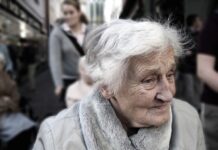MIA Survey: Ex-patients Tell of Force, Trauma and Sexual Abuse in America’s Mental Hospitals
In a MIA survey of people who had been patients in mental hospitals, nearly 500 respondents told of an experience that was often traumatic, and frequently characterized by a violation of their legal rights, forced treatment with drugs, and physical or sexual abuse. Only 17% said they were “satisfied” with the “quality of the psychiatric treatment” they received.
Risk of Suicide After Hospitalization Even Higher Than Previously Estimated
New analysis of post-discharge suicide rates finds estimates 6 times higher than recent studies.
Humanizing Mental Healthcare by Reducing Coercive Practices
A review of the literature demonstrates that coercive practices lack empirical support and violate human rights.
Psychiatric Diagnosis Can Lead to Epistemic Injustice, Researchers Claim
A discussion of the role of epistemic injustice in the experiences of patients diagnosed with psychiatric disorders.
United Nations Rep Brings Attention to Human Rights Violations in Psychiatry
Dr. Dainius Pūras argues that the status quo in mental health treatment is no longer acceptable and demands political action to promote human rights.
BPS Releases Review of Alternatives to Antipsychotics
BPS releases report encouraging behavioral interventions for people with dementia, rather than antipsychotics
Refugees and Immigrants Experience Increased Medical Coercion
Refugees and first-generation immigrants of African descent are at greater risk of experiencing medical coercion when compared to immigrants of other visible minority communities in Canada.
Coercion in Care
To this day I do not know how I found my way back. I think it might’ve had something to do with willpower, as I was NOT going to lose myself. I was NOT going to end up like those people who were living indefinitely in the hospital—those “chronic schizophrenics”, as they say. I was going to find my way back, back to myself.
ECT for Agitation and Aggression in Dementia
The International Journal of Geriatric Psychiatry published an article titled Safety and utility of acute electroconvulsive therapy for agitation and aggression in dementia, which concludes "Electroconvulsive therapy may be a safe treatment option to reduce symptoms of agitation and aggression in patients with dementia whose behaviors are refractory to medication management." But the participants were not a random selection of people taking the drugs in question. Rather, they were individuals selected because of aggressive behavior, most of whom had been taking some or all of these drugs on admission. So it is a distinct possibility that the aggression was a drug effect for many, or even most, of the study participants.
Measuring How Mental Health Professionals See Service Users’ Rights
A new scale has been developed and validated to examine beliefs held by mental health professionals towards service users’ rights.
Study Identifies Psychiatric Patients at Greatest Risk of Coercion
In an effort to reduce coercion, researchers isolate associated factors including age, relationship status, location, and diagnosis.
The Curious Case of over 50 Consecutive ECTs in Melbourne
Over the past few weeks I have been witness to, and increasingly involved in trying to stop one of the most extreme examples of psychiatric brutality I have encountered in my 40 years in this field. And I have encountered quite a few. I suggest you sit down before watching and reading. This is not your usual, run-of-the-mill psychiatric abuse story.
VA Hospitals Perform Worst on Inpatient Psychiatric Care
The results of the cross-sectional study show that U.S. Department of Veterans Affairs (VA) owned hospitals perform worst on most measures.
Study Privileges the Voices of Persons Hospitalized Against Their Will
How people are treated after being hospitalized can either help them to overcome the traumatic effects of coercion or make them worse.
Mental Health Seclusion to be Scrapped After UN Condemnation
From Stuff: In 2015, the United Nations Committee Against Torture expressed concern at New Zealand's use of seclusion against mental health patients. According to a...
Nuanced History of Asylums Shows Context Matters
A bottom-up approach to understanding the history of asylums allows us to learn from past successes and failures in the mental health system.
“All for the Best of the Patient”
For psychiatric ‘help’ to happen by force is a paradox and makes absolutely no sense. It can destroy people's personality and self-confidence. It can lead, in the long run, to physical and psychological disability. My dear daughter Luise got caught in this ‘helping system’ by mistake, but she didn't make it out alive. I'm sad to say I later discovered that the way Luise was treated was more the rule than the exception.
New Medications Fail to Show Efficacy for Alzheimer’s Disease
Three phase III clinical trials assessing the efficacy of Lundbeck’s investigational drug idalopirdine for Alzheimer’s disease have failed
Allow Some Mental Health Patients to Self-harm
From The Independent: According to one researcher, some patients on mental health units should be allowed to self-harm. Forcibly stopping patients from engaging in self-harm can...
Training Program Decreases Police Force and Arrests for Mental Health Crisis Calls
Colorado police trained in crisis intervention infrequently use force or arrest individuals experiencing a mental health crisis and are likely to transfer individuals to a treatment facility.
Lancet Study Questions Safety of Locked Psychiatric Wards
A new study published in Lancet Psychiatry challenges the common practice of locking psychiatric wards to prevent patients from attempting suicide or leaving against...
Rethinking Public Safety – The Case for 100% Voluntary
It is time to create an entirely voluntary psychiatric system. International conscience is clear. The singling out of people with psychosocial disabilities is not worthy of a free society. There are better, safer ways to address legitimate public needs.
Shocking Rise of NHS Abuse of Mental Health Patients
From The Sun: Reports of abuse against NHS mental health patients hit a record high last year. In 2016, almost 200 cases related to the...
Support CRPD Absolute Prohibition of Commitment and Forced Treatment
Mad In America bloggers, and everyone who is interested, you are cordially invited to participate in a Campaign to Support the CRPD Absolute Prohibition of Commitment and Forced Treatment. The requested action is to write a blog post or contribute artwork, relevant to the purpose of the campaign, i.e. discussing and supporting the absolute prohibition that is promulgated under the Convention on the Rights of Persons with Disabilities (CRPD). Posts should be ready for March 29, 2016, the opening day of the 15th session of the Committee on the Rights of Persons with Disabilities.
Foxes Guarding the Henhouse: the Role of the Chief Psychiatrist
I do not wish to discuss an individual patient. I wish to discuss the conduct of the psychiatrists at Upton House, Dr Katz in particular, who have been responsible for the administering of over 50 ECTs consecutively to a patient, and have reportedly repeatedly restrained this patient to a bed, on one occasion for approximately 60 consecutive days.



























